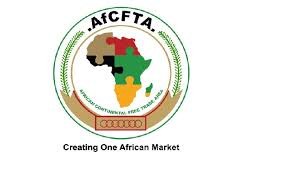Publication

Through What Channels Does Financial Technology Impact Financial Development? A Literature Review
In this systematic literature review, we looked at 56 peer-reviewed articles published between 1980 and 2024 to see how financial technology (Fintech) influences how an economy conducts its financial activities. Using Čihák et al.'s (2013) framework, we investigated how Fintech impacts core financial functions such as information and capital allocation, monitoring and corporate governance, risk trading and management, savings mobilization and pooling, and transaction of goods, services, and financial instruments. We discovered that Fintech has a significant positive impact on financial development in multiple dimensions. According to the research, Fintech benefits financial development by boosting financial inclusion, increasing efficiency, minimizing information asymmetry, and streamlining transactions. However, we identified potential challenges and research limitations, such as establishing clear causal relationships, assessing the consequences on income inequality, and optimizing regulatory regimes. Overall, this review provides a comprehensive synthesis of current information on Fintech and financial development, with implications for policymakers, academics, and industry specialists.
Working Paper

Financial Development, Foriegn Direct Investment, Trade Liberalization, and Economic growth in African Countries: Evidence from AfCFTA Countries.
This study examined the interplay between financial development, foreign direct investment (FDI), trade liberalization, and economic growth within the context of the African Continental Free Trade Area (AfCFTA). Utilizing annual data from 1990 to 2021 for 40 African countries, the research employs panel co-integration tests, Feasible Generalized Least Squares (FGLS), and Dumitrescu-Hurlin causality tests to assess: how trade liberalization, financial development, and FDI impact economic growth in African countries; how trade liberalization interact with financial development to impact economic growth; and the effect of trade liberalization on economic growth in the presence of foreign direct investment. Results indicate a long-term co-integrating relationship between economic growth, trade liberalization, FDI, and financial development. The study found that trade liberalization and financial development positively influence economic growth, while FDI has a nuanced impact, potentially decreasing growth in the long term. Furthermore, the interaction between trade liberalization and financial development suggests that increasing financial development can mitigate some negative effects of trade liberalization on growth. These findings underscore the importance of enhancing financial systems and governance quality to maximize the benefits of AfCFTA for sustainable economic growth in Africa.
Work in Progress

Predicting Currency Crises in Nigeria Through an Exchange Market Pressure Index
In this study, we attempt to predict the incidence of currency crises in Nigeria using Eichengreen et al., (1995) methodology for creating a Exchange Market Pressure Index (EMPI).
